(Warning: Spoilers ahead.)
A great scholar once said, “Women’s stories matter. They just matter.”
Okay, this was Reese Witherspoon on The View, and my point still stands.
The Gilded Age proves that with its cast stacked with beloved TV and stage favorites like Christine Baranski, Cynthia Nixon, Audra McDonald, Carrie Coon—and many more—pulling focus in every scene. But even after only one episode, I can already tell that the lavish period drama dares to do the impossible: make me side with the man in the marriage.
It is still very early days in Season 3 to make such a prediction with Bertha (Coon) and George Russell (Morgan Spector) not even sharing a single scene in the deliciously soapy premiere. But it is this absence that points to Bertha’s scheming flaws. George is away on business in Arizona, while Bertha continues to pull strings to ensure their daughter, Gladys (Taissa Farmiga), is wed to the Duke of Buckingham (Ben Lamb).
The foundation of discontent has already been laid with Railroad Daddy promising Gladys that she can marry for love at the end of Season 2, and Bertha making a deal with the devil—a duke—for her daughter’s hand. Whatever Bertha wants, Bertha gets, and this lofty goal fits the bill, regardless of how Gladys feels.
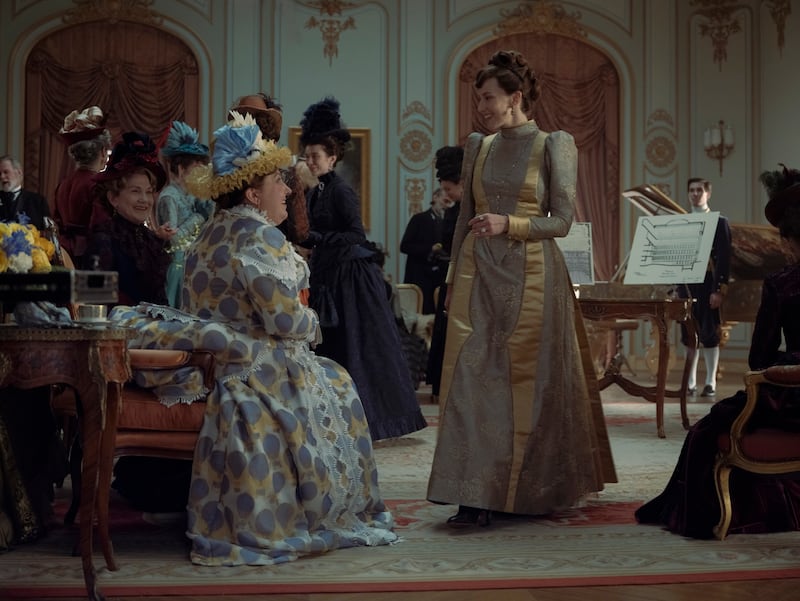
I have previously cheered on each of Bertha’s ladder-climbing endeavors as she has scratched and clawed her way to the top of the hard-to-infiltrate New York social scene.
Coon makes it easy to want any of her characters to succeed, whether it’s any of the leaps of faith Nora takes in The Leftovers, playing the Type A sibling in His Three Daughters, or Laurie calling out her friends in The White Lotus. Of all the twists and turns in The White Lotus finale, it is the Emmy-worthy monologue Coon delivered that still lingers in my brain rather than any of the more outlandish moments. For the record, I am confident that Bertha would not be content with just a seat at the table; she would need to own the table.
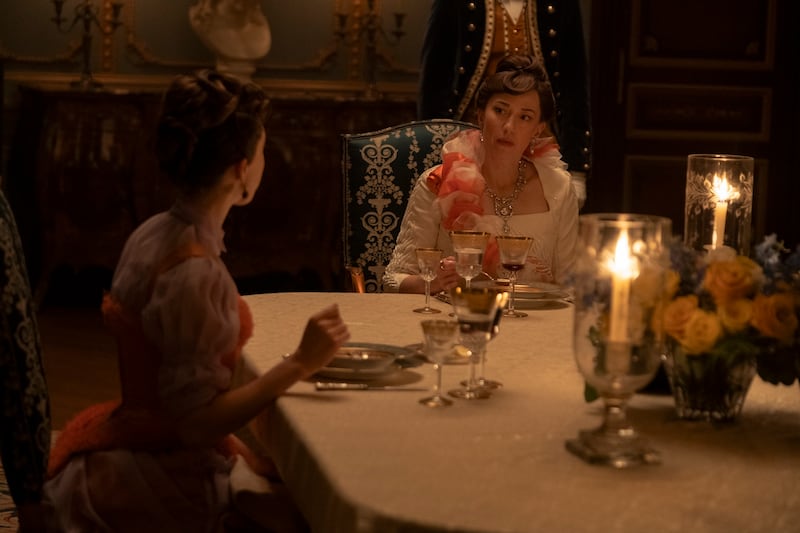
Having Coon as a regular HBO Sunday night fixture is welcome even if Bertha’s latest scheme is testing the limit of how much I want the Russell matriarch to win. Right now, I am all for Gladys running away in the middle of the night and giving Bertha her first big society fail since society maven Mrs. Astor (Donna Murphy) let her in. How dare Julian Fellowes make me root against Bertha!
As the proud owner of this Spector-approved Bertha Russell tee, I am not ready to throw in the towel yet. Still, Bertha’s relentless pursuit of British aristocracy is not as endearing as the Opera Wars or getting Mrs. Astor (Donna Kelly) to attend a party. Both season-long quests are a reminder that even if The Gilded Age stakes are, for the most part, wonderfully low—the drama is always high.
Now, Bertha embraces the 19th-century version of slipping a tip to Page Six by leaking stories to the newspapers about the Duke of Buckingham’s (Hector to his nearest and dearest) impending return to New York City and betrothal to Gladys. It is a tacky tactic as old as time that could blow up in her face if Gladys elopes with Billy Carlton (Matt Walker), which I am now urging from the sidelines. Being from old American money with a storied name is no longer enough for Bertha, and she treats the burgeoning romance with Billy like Gladys has eyes for someone on their staff.
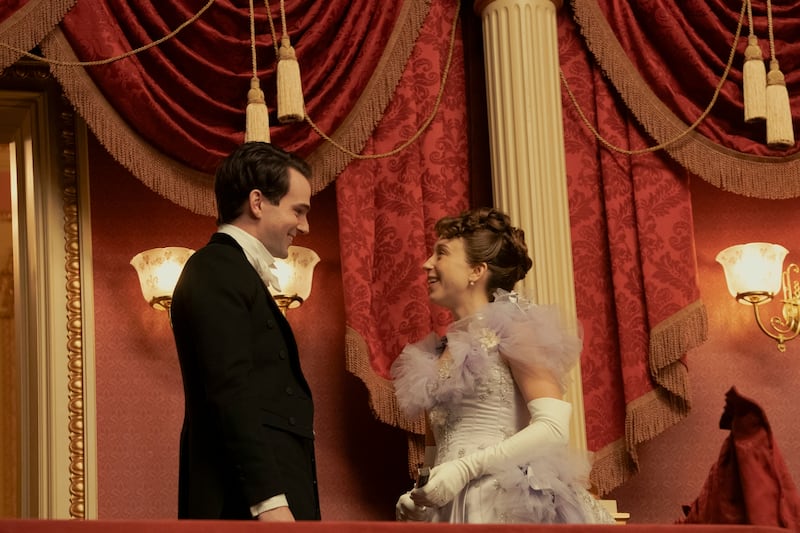
Rumors of the Duke’s impending arrival worry Billy, but Gladys is confident that her father will set Bertha straight as soon as he returns home. Ah, sweet summer child. No wonder Bertha labels her offspring young and foolish.
Larry makes his sister’s case with George absent, standing no chance of changing his mother’s mind. Bertha thinks that if she’d had the same start as Gladys, she would’ve become queen of the world. I don’t doubt it. Even in a society that will banish divorced women (as Aurora Fain fears will happen to her), Bertha has wielded every ounce of power to conquer New York. Coon plays Bertha’s reasoning without a whiff of insecurity or questioning. She considers it not a matter of opinion but of fact that “marital happiness, as a goal, is invariably doomed to failure.” Someone stitch that on a cushion and sell it on Etsy.
Anger flashes across Larry’s face when his mother utters this sentiment, but it is pointless, as no argument will win against Bertha—not even one made by George. Even using Bertha’s marital bliss is a waste of time because she doesn’t want her daughter to be “ruled by infatuation.” With Bertha moving from ruthless ambition into monstrous egomaniac territory, it gives big “do as I say, not as I do” energy. Instead of being the plucky outsider tearing up the rule book of who gets to become a socialite, Bertha is now the villain, casting aspersions on people she deems not good enough.
One thing Bertha does get right is the notion that “a bad marriage is a prison.” However, Bertha doesn’t understand that her drive for power puts her daughter on a one-way ticket to unhappiness.
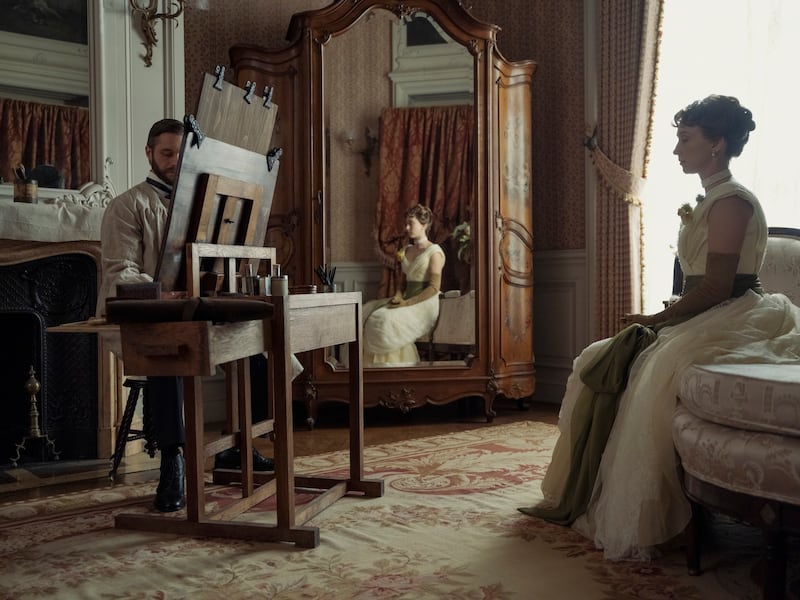
Bertha cites her experience throughout the episode, from her conversation with portrait painter John Singer Sargent to how she barely gives Billy’s mother the time of day. I am all for Coon’s delivery of withering sentiments or gassing up artists, but Bertha’s inability to consider Gladys as a person and not a power move is putting her on a collision course with George, who takes the business of being a good father as seriously as his railroads.
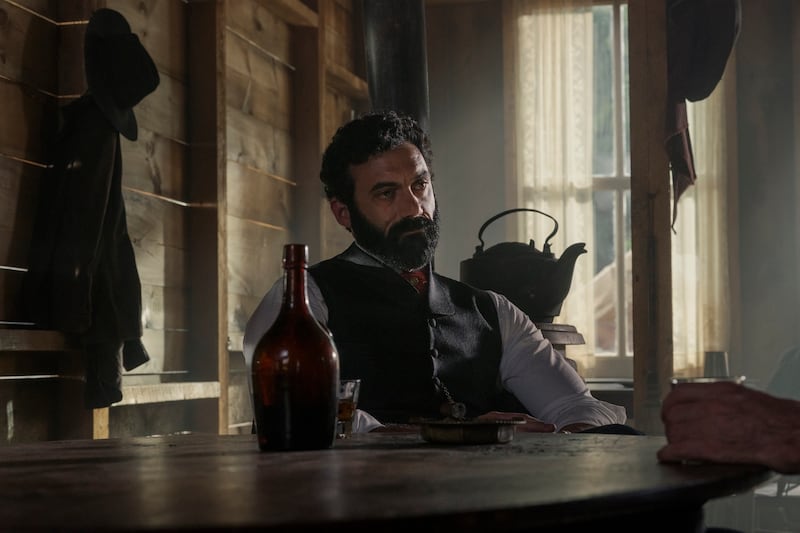
Bertha’s success is evident in how Met flourishes in the opera space, while George has trickier business dealings. His plans to dominate the railroads hit a snag in Arizona, and the banks in New York are no longer stable. George is returning to handle the latter, and news of his daughter fleeing will be an unwelcome distraction. The power couple who get horny at the mere thought of the other expanding their empire are no longer aligned. No one wants to pick a parent, but if Bertha continues down this path, it will be an easy choice.
The post How Dare ‘The Gilded Age’ Make Me Hate Carrie Coon appeared first on The Daily Beast.




